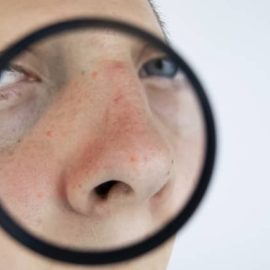It’s a fact that, today, business ethics and social responsibility are more important than ever in the beauty and personal care market. Consumer behaviour, which was already metamorphosing, has been profoundly transformed by the coronavirus health, social and economic crisis. This change has impacted all industries and the beauty and personal care market is no exception.
These developments can be summarized in three major adjustments that must be undertaken by brands:
- Consumer needs must be at the center of everything. BPC brands should adjust to generate more targeted products based on their clients’ behavior, generating personalized formulas that match their lifestyle and needs. This includes the need for brands to develop digital communications and sales, to meet consumers where they currently are gathering.
- A new and more intense focus on ethics and sustainability. More and more, consumers are concerned about how brands act regarding the environment and the ethical treatment of people, particularly workers. In fact, two-thirds of consumers claim that climate change action has become even more important after the COVID-29 crisis, and 88% of respondents believe that more attention should be paid to reducing pollution, according to McKinsey.
- The need for further transparency. Consumers are demanding brands to be clear about their product claims, and to develop a one-to-one relationship where consumers have more control.
These main three transformations have deep implications for BPC brands. Consumers of beauty and personal products are now preoccupied beyond superficial values: they want treatments to be effective and convenient, but also believe brands should be coherent and committed with their business ethics and social responsibility.
The answer to this dilemma is obvious: BPC companies must reinvigorate sustainability initiatives and build trust with their consumers. In order to do so, they must address consumer demands for sustainable, ethical companies thus generating communities around shared values.
Content
Keys to become a leader in business ethics and social responsibility
Consumers are demanding brands to take the lead in business ethics and social responsibility, particularly around environmental issues. There are at least three main areas where BPC companies must act now in order to do so:
- Ingredients: ingredient lists are incresingly relevant to consumers nowadays. First of all, there’s a demand for natural, organic ingredients, to the point where 29% of consumers are looking for all-natural ingredients in skin care products. Second of all, consumers search for products where these actives have been ethically sourced, actively contributing to a sustainable environment.
- Packaging: brands are quickly reacting to new business ethics and social responsibility regarding packaging, with beauty product launches that include eco-friendly packaging continually on the rise.
- Lifestyle and behavior: brands can help consumers incorporate daily routines that slow down climate action and their own lifestyles. For instance, there are more beauty product launches that include de-stressing claims, such as the blue lotus extract and products that help consumers cope with pollution issues, such as the matcha green tea extract.
Ethically-sourced ingredients: the answer for business ethics and social responsibility in the beauty sector
Ethically-sourced ingredients are perhaps the key point of the transformation towards sustainability in the context of business ethics and social responsibility in the beauty industry. In fact, choosing the right ingredients might be the main tool to push a change in production patterns that are obsolete.
This is partly the reason why ethical and sustainable product certifications are on the rise: brands need to identify and collaborate with certified and qualitative suppliers that can offer ingredients with such qualities.
Provital has worked to provide BPC brands with trusted ingredients and extracts that help companies become more sustainable, while also generating transparent narratives that connect with nowadays’ consumers.
Take our recently developed active Senseryn as an example of how the right ingredients can boost a brand’s commitment with their new clients’ needs:
- It’s effective. Seneryn is an active for sensible skin that works by activating the sensory bitter taste receptors that calm the skin. Among its benefits, this active helps improving reactive skin, making it more reactive to inflammation, while also optimizing anti-dermatitis microbiota and preventing the vicious cycle of dermatitis and superinfection.
- It answers to changes in lifestyle. At Provital, we’ve observed an industry trend that aims to link physical and psychological well-being. Thus, we’ve developed an Senseryn as an active that, based on neuroscience and neurocosmetics, appeals to both body experiences and emotions.
Our active also responds to current lifestyles that are generating more skin sensitivity problems, including the stress and pollution of living in the big cities with a warmer climate, the use of masks, prolonged exposure to the sun and the use of certain cosmetic or clothing products that damage skin.
Today, an average of 1 to 2 or 1 to 3 people depending on the country, claim to have sensitive skin, and cases of reactive skin and atopic dermatitis are on the rise. Provital’s Senseryn provides an answer to consumers wishing to alleviate all these issues related to their lifestyle.
- Ethics and sustainability. Senseryn is a natural, organic, sustainable and ethically-sourced active, certified by ISO 16128-Natural Origin (100%) and the Cosmos Certificate.
The search for ingredients that comply with consumers’ demands nowadays ends by identifying and recognizing the right ingredient and extract suppliers. Read more about how Provital can help you improve your business ethics and social responsibility while also generating products that resonate with today’s consumers in our free ebook ‘2030 beauty trends accelerated after COVID-19, leading the BPC industry to a more ethical, science-based future’.
No comments yet
There are no comments on this post yet.





Leave a comment